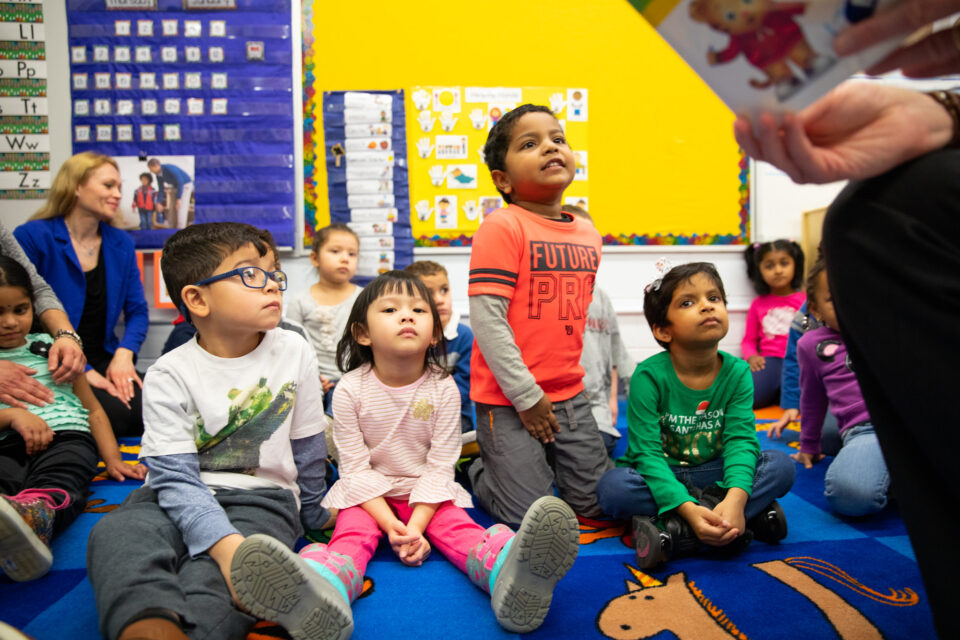
WEIDMAN: Our Newark Charter Is Fully Staffed With 86% Teachers of Color—Here’s How We Do It
October 24, 2022
Black Men Read Day at Newark’s Camden Elementary School!
October 25, 2022Latest on NAEP Scores: How Does NJ Stack Up Against the Rest of the Country?
This morning the National Assessment for Educational Progress, or NAEP, published 2022 scores for each state. We knew Covid-19 learning loss was real based on the release last month of national 4th grade scores: for the first time since 1969 when NAEP started measuring student skills in math and reading (through a representative sampling for each state), math proficiency dipped by 7 points while reading proficiency dipped by 5 points, the largest drop in 30 years.
Education @SecCardona on declines in test scores: "If this is not a wake-up call for us to double down our efforts and improve education […] then I don't know what will. […] We have to double down now." https://t.co/KQAD94lrEV pic.twitter.com/G8tmKAPxGe
— The Hill (@thehill) October 24, 2022
Now we have the state-by-state comparisons and can examine New Jersey students’ changes in math and reading proficiency from the last time the test was given in 2019:
- Fourth-Grade Math: Down 7 points to 239
- Fourth-Grade Reading: Down 4 points to 223
- Eighth-Grade Math: Down 11 points to 281
- Eighth-Grade Reading: Down 1 point to 270
Yet there’s more to this than an echo of the national picture. The Philadelphia Inquirer points out that “New Jersey [and PA] students saw declines in math and reading at slightly steeper rates than the national average.” In 8th grade math, only three states had a larger decrease.
Huge drops for MA, NJ and MD, which pride themselves on being national leaders. https://t.co/SrWFbQfQw1
— Marc Porter Magee 🎓 (@marcportermagee) October 24, 2022
And achievement gap widened: for instance, the gap between Black and white students in 4th grade math increased by 8 points, from a 24-point gap to a 33-point gap. (The reading gap only increased by one point. Analysts point out that learning math is much more dependent on classroom instruction than literacy; also, parents are more comfortable filling in on reading than in math.)
I do take exception to the narrative rapidly taking hold in local media: that NJ student proficiency rates dropped a lot– more than many other states—yet no worries, our kids, disproportionately wealthy and privileged or at least attending schools that spend twice as much per pupil than others in the country, are still ahead of the pack. We love to boast that our school system is the best in the country, right? Here is Chalkbeat’s headline: “New Jersey students did better than country’s average on NAEP math, reading tests despite dismal drops.” Here is Politico’s: “New Jersey students’ test scores declined in wake of Covid but beat national averages.”
Sure we’re better than national averages. After all, we have the third highest median income in the country and have the third highest median expenditure per student. But what do you do with these two data points?
- In 2019 only four states had higher math proficiency scores for 4th graders than NJ (besides schools run by the Department of Defense): Minnesota, Massachusetts, Virginia, and Florida.
- In 2022 nine states had math higher proficiency scores for 4th graders than NJ (besides schools run by the DOD): Wyoming, Massachusetts, Nebraska, Florida, Wisconsin, North Dakota, Iowa, Utah, and New Hampshire.
I suppose one could argue that our drops in proficiency were so steep because we started out so high. This strikes me as just so much spin. Can Murphy’s Education Department engage honestly with the facts and explain their strategies for statewide learning recovery? Will the Senate Education Committee, which meets Thursday, discuss student outcomes with Acting Commissioner Angelica Allen-McMillan? Do NJEA lobbyists, who pushed for school closures so ardently, have anything to say? So much rests on state leadership’s ability to grapple with the data and come up with a plan that’s bigger than the pandemic. As North Carolina Gov. Beverly Perdue said, “This is not the result simply of a horrible three years for students, this is a result of a realized generational decline. If people get this data, look at it, and think ‘It’s all because of the pandemic,’ then that could very well be a nearly fatal mistake for decision-making.”
The question now is, will states and districts hide from the numbers or engage honestly with families and dig in to spend federal funds to address individual needs w evidence based interventions?
— Robin Lake (@RbnLake) October 24, 2022




